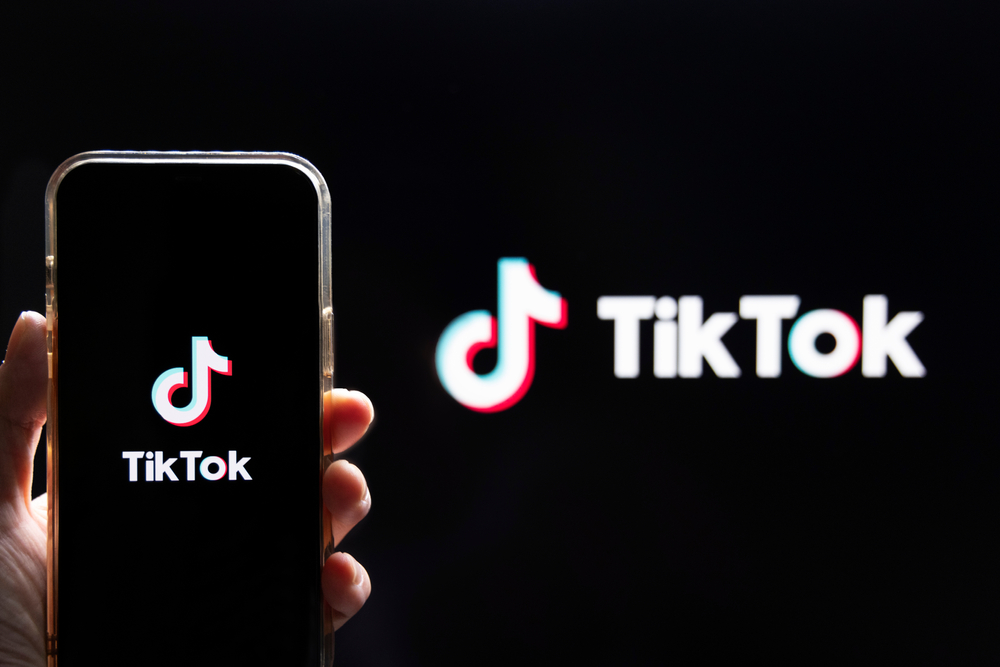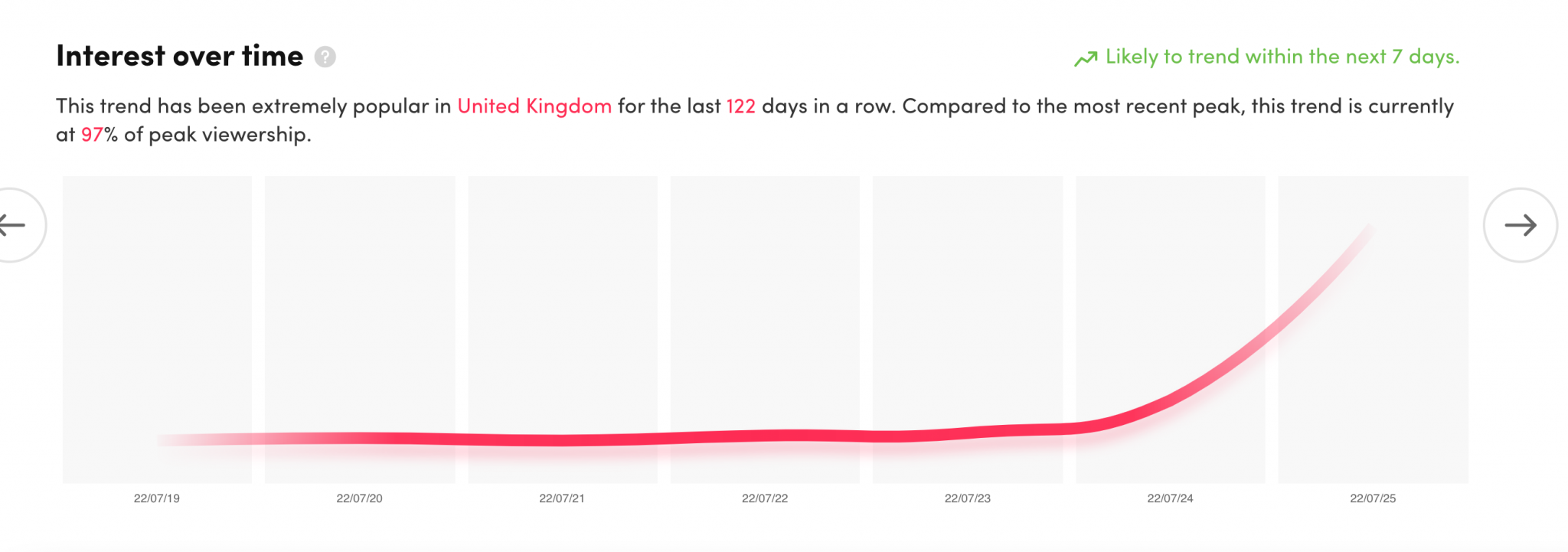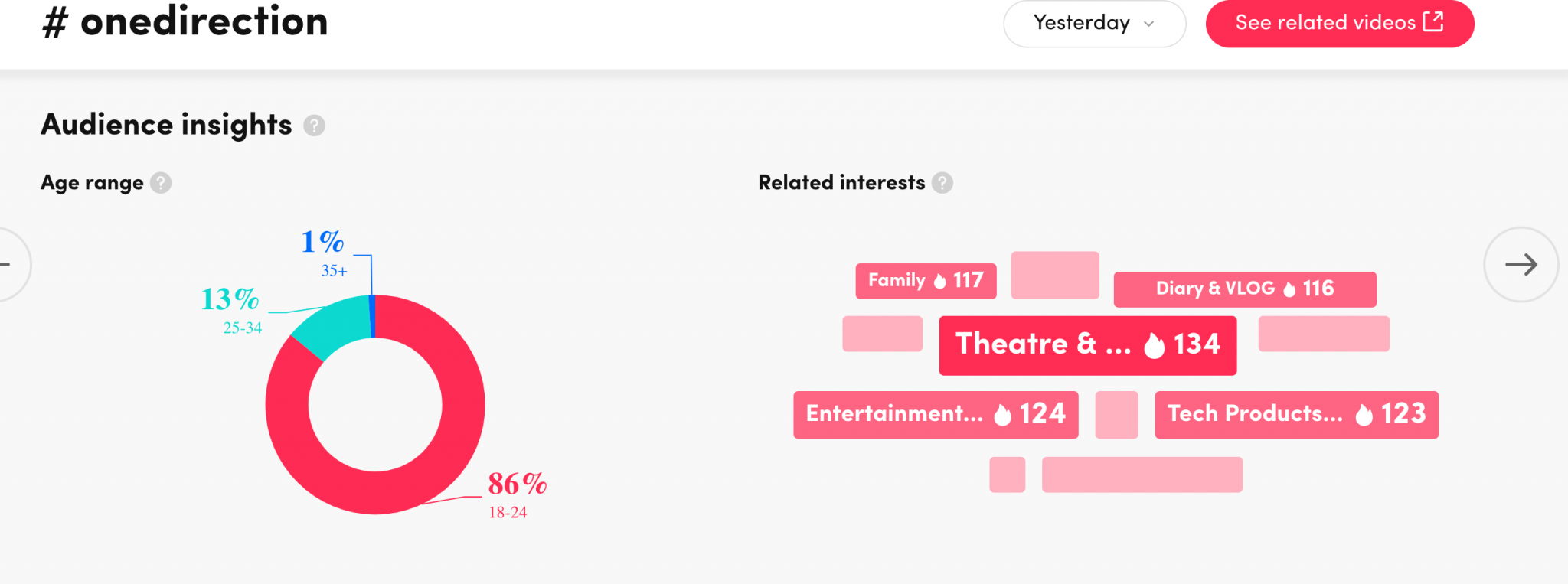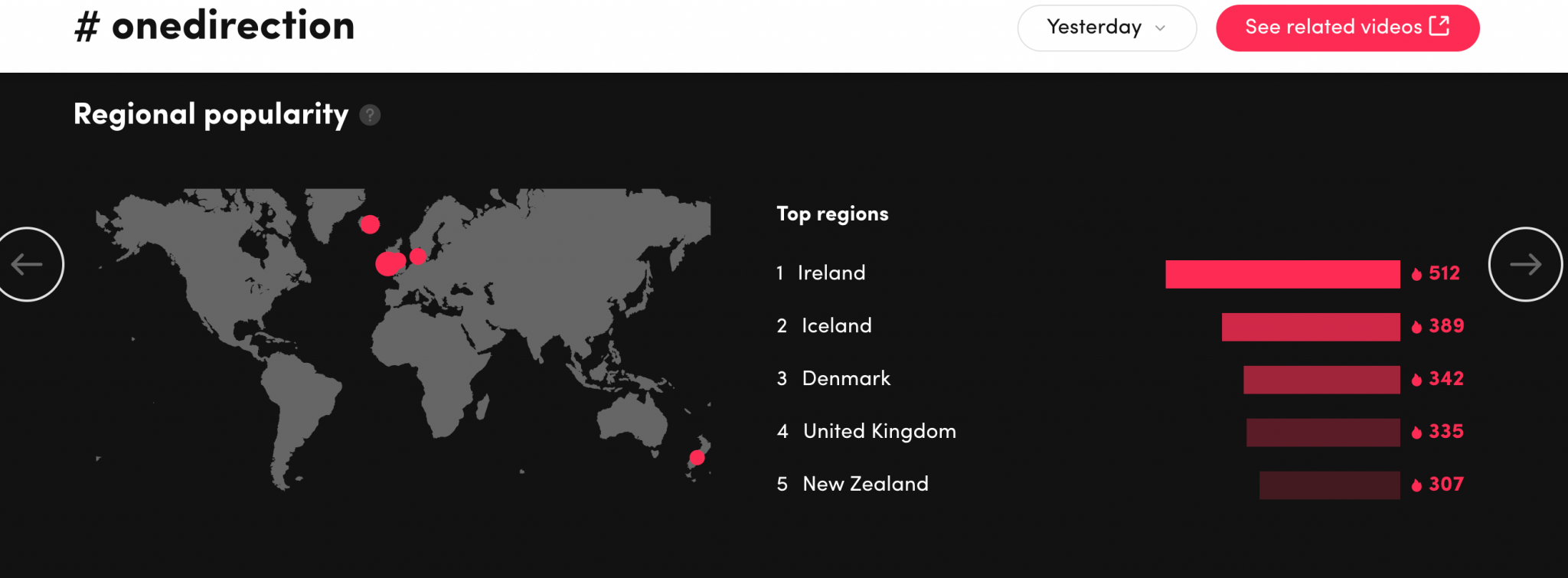
The rise of TikTok as a search engine.
If you haven’t seen this discussion all over your Twitter and LinkedIn feeds (admittedly, with a lot of posts from me) then I have no doubt that you’ll be hearing about it soon – starting with this blog right here.
I wrote a blog post a while back about why I think TikTok is being used as a search engine, due to noticing my own user behaviour of the app, which is:
Search for whatever I’m looking for on TikTok.
- “UK breaks”, for example.
- Watch the videos that take my interest.
- Save my favourites on the app.
- Head to Google to do more research on my favourites.
Since then, I’ve been keeping an eye on marketing publications to see if and when it would get spoken about more.
And I didn’t have to wait long.
The likes of Semrush and Search Engine Journal have posted about TikTok increasingly being used as a search engine.
And that’s not all, Google acknowledged it this week.
Google released internal data that suggests nearly half of Gen Z are using TikTok as a search engine.
Since that data, some TikTok videos are now appearing in Google’s SERPs – coincidence? I think not.
What I didn’t realise is how controversial this topic would be.
I’ve seen many people tweeting:
“WHO even uses TikTok as a search engine”
“People are only looking for restaurant recommendations!”
“It doesn’t count if they’re only looking for holidays”
“They’re confusing search for exploring”
And I want to address a couple of these tweets.
“WHO even uses TikTok as a search engine” – Mostly Gen Z, which isn’t surprising, considering 60% of the app downloads are Gen Z.
“People are only looking for restaurant recommendations!” – This still counts.
“It doesn’t count if they’re only looking for holidays” – Yep, you guessed it, this still counts too.
“They’re confusing search for exploring” – If you’re on the TikTok homepage (the For You page) then yes, I’d agree that coming across “holidays in the UK” videos would be considered exploring. But this isn’t how Gen Z are using the app, Gen Z are SEARCHING for specific things.
Look at the likes of Pinterest and YouTube, both social/search hybrids.
And TikTok is no different.
So, here’s your guide to TikTok and how it can be used as a search engine.
What is TikTok?
Before we get to TikTok, we need to talk about Musical.ly. Musical.ly was a Chinese social media service, where users could create and share short lip-sync videos, that was initially released in 2014. In 2017, ByteDance acquired Musical.ly and eventually merged it into TikTok in 2018.
With the death of Vine (RIP – I’ll never forgive you, Twitter), the short-form video app was warmly welcomed, offering a breath of fresh air along with some familiarity. TikTok calls itself the “leading destination for short-form mobile video”.
TikTok initially started with allowing users to only post 15-second clips, but as app users grew, so did the demand. Users were then able to post one-minute videos, then three and now 10. TikTok users can create and customise videos with different filters and audio clips, which can then be shared into the TikTok community.
How the TikTok algorithm works
TikTok’s algorithm is a smart one, and something that really sets it apart from other social apps such as Facebook or Instagram. Content recommendations are personalised for EACH user, which is displayed on the “For You” page (FYP) and what you see on your page will be totally different to what your friends may see.
So, if you watch or interact with a lot of cooking videos or accounts, your FYP will most likely include cooking-related videos. As your viewing behaviour and preferences change while you use the app, so will your feed. For example, one year ago, my FYP was full of make-up and fashion content, whereas now it’s more recipes, astrophysics and memes – what a combination! That’s because I’m interacting with that content more – I’m saving recipes, liking astrophysics content and sharing memes with my friends.
So, let’s talk about the algorithm in a little more detail.
What are TikTok’s ranking factors?
User interactions and behaviour signals: These take into consideration things such as likes, shares, accounts followed, comments posted, content created, videos completed and saved videos.
Video information: Caption keywords, sounds, hashtags, filters/effects and content.
Audio: Categorises your content and serves it to relevant audiences. For example, if you interact with a lot of videos that use the same sound, you’ll see a lot more videos using that audio than someone who hasn’t interacted with it.
Location and language: Posting location, language preferences and type of mobile device.
Not interested feedback: Videos that users specifically mark as not interested, users you’ve hidden and videos that you skip through
Factors that do NOT influence the algorithm
Follower count: You do not need followers to reap the rewards of the app, which is why you see so many people talk about why brands or influencers need to be on TikTok.
Previous high-performing videos: If you have a video or two with high views or interactions, this has no direct influence on the algorithm for any further videos you post.
TikTok being used as a search engine
It’s becoming increasingly clear that TikTok is being used as a search engine, especially within the younger generation. TechCrunch recently reported that 40% of Gen Z now prefer to use search on TikTok and Instagram rather than Google, and this change in search habits in young adults was first recognised by Google itself.
So why are young people turning to TikTok for search? Well, the easiest answer is that they prefer visual content, with 81% of Gen Z claiming that Instagram and YouTube are their preferred socials.
Sure, I can’t imagine that many people are using TikTok to find the answer to the ultimate question of life, the universe and everything (it’s 42) but they are using it to find information before turning to Google – as Google’s internal data suggests.
Short-form videos from TikTok are now showing within Google SERPs, which appear under a section titled “short videos”.
Initially, it seemed as though you needed to type the keyword “TikTok” followed by whatever you’re searching for, but now, some search terms come up with “short videos” that include content from TikTok, such as “homemade pizza” (big thanks to Luce Rawlings, SEO Consultant for showing me that).
One user on LinkedIn suggests that some people are using TikTok and other social channels for search by default because SEO has made Google impossible to use. Examples used were trying to find a recipe that is buried in ads, or searching for something specific and getting blogs that list [x] number of options from companies that are probably burning through a big budget trying to rank on Google.
But Gen Z aren’t just using TikTok as a search engine. More data from Ofcom suggests that young teens are turning to TikTok and Instagram for news, too. And although prevalent among Gen Z, the data suggests that 62% of 25 to 34-year-olds are also using social media for news – which just edges out the 61% who use television for their news fix.
Can you trust the information on TikTok?
Speaking of how many young people are using TikTok for news, it’s important to talk about whether or not we can actually trust the information we find on the app.
The number of people consuming news content on TikTok has increased from 800,000 in 2020 to 3.9 million in 2022.
This growth in news consumed on TikTok is mostly driven by younger age groups, but despite the popularity of the app, less than a third of young people actually trust the news content they find on there.
And this is a big point.
Misinformation on social media is a BIG problem, and it’s no different for TikTok, either.
I don’t believe you can fully trust the information found on the app, let alone news discovered on there – especially as the algorithm determines what videos to show you, based on previous interactions.
TikTok does flag unverified content to users, but is this enough to protect teens from regularly consuming harmful misinformation?
How can brands leverage TikTok for search?
The opportunity for brands to reach their current audience and beyond is HUGE on TikTok, and with TikTok videos now appearing in Google search, this is your sign to take search on the app a little more seriously.
TikTok identifies three main ways in which small businesses are finding “real” success on TikTok. These are:
Being authentic and creative: Creating content that resonates with your audience, making your brand more personable by taking part in trends and showing a level of authenticity that you can’t portray on other platforms is all part of the secret sauce of TikTok success. TikTok encourages brands to “Not Make Ads. Make TikToks”. The app challenges brands to be more creative with their content, and to make videos that really resonate with their audience to create more authenticity.
Sparking discoveries and new connections: Unlike other platforms, you can reach your audience and beyond in ways that were not previously possible. If you see a trend that is popping off, try to see how you can get your brand involved in that same trend – you’ll reach audiences that are interacting with that trend and therefore, they’ll discover your business.
Turning the small wins into big results: Celebrating small wins – such as achieving a certain number of views – is one thing, but it can turn into something much larger than that. You may find that products sell out or you obtain more leads. Take a look at your data and see how you can expand on that. Why has one video sold out your product? Did you hop on a trend? Did you use a popular audio track? How many times has it been shared?
TikTok’s Creative Center is an incredible tool that every brand and marketer should have in their arsenal. Here, you can take a look at trending hashtags, sounds, creators and videos. And you can browse what is trending in whatever country you’re in or looking to target.
As of today (25 July, 2022), #OneDirection is trending due to X-Factor releasing how they put together the boyband, after Liam Payne said that the band was created around him – shocker, it wasn’t. Here you can see interest over time, audience insights and related interests, and how likely it is to trend over the next seven days.


Alongside this, you can also see regional popularity as well as trending creators under that hashtag and you can customise the results depending on how far back you want to look. Currently, you can see results for yesterday, last 30 days and last 120 days.


Now, I’m not saying that every brand or business can hop onto a #OneDirection trend, but this is interesting data that we can apply to see how brands can utilise TikTok for search. While more data is coming out about TikTok as a search engine, there’s not a whole load of information out there.
The main thing I would keep in mind when it comes to TikTok being used for search is written text and the algorithm/AI. Be mindful of what you’re writing in your captions, text overlay and hashtags. If you’re trying to rank for a keyword, or get discovered for a specific keyword, then you need to ensure that this is clear in your content for TikTok for analysis.
Conclusion
Is TikTok going to overtake Google as the most popular search engine? Probably not – in fact, it’s very unlikely.
I think TikTok is being used in a similar way to YouTube, but what sets it apart from YouTube is not only the incredibly smart algorithm but the short-form content that is available on the app.
If you’re looking for a sign to incorporate TikTok into your marketing and search strategy, then this is it.
Take a look at what your competitors are doing, look at how many views different hashtags have and see how many videos are under a certain audio trend, mix this with some keyword research and there you have it – TikTok for search.
You can listen to our very own Annie-Mai Hodge talk to Jack Chambers-Ward at Candour discussing everything TikTok SEO here.
https://twitter.com/candouragency/status/1554031051135123458?s=20&t=xKkKFbN841E9vdJKSieulg




